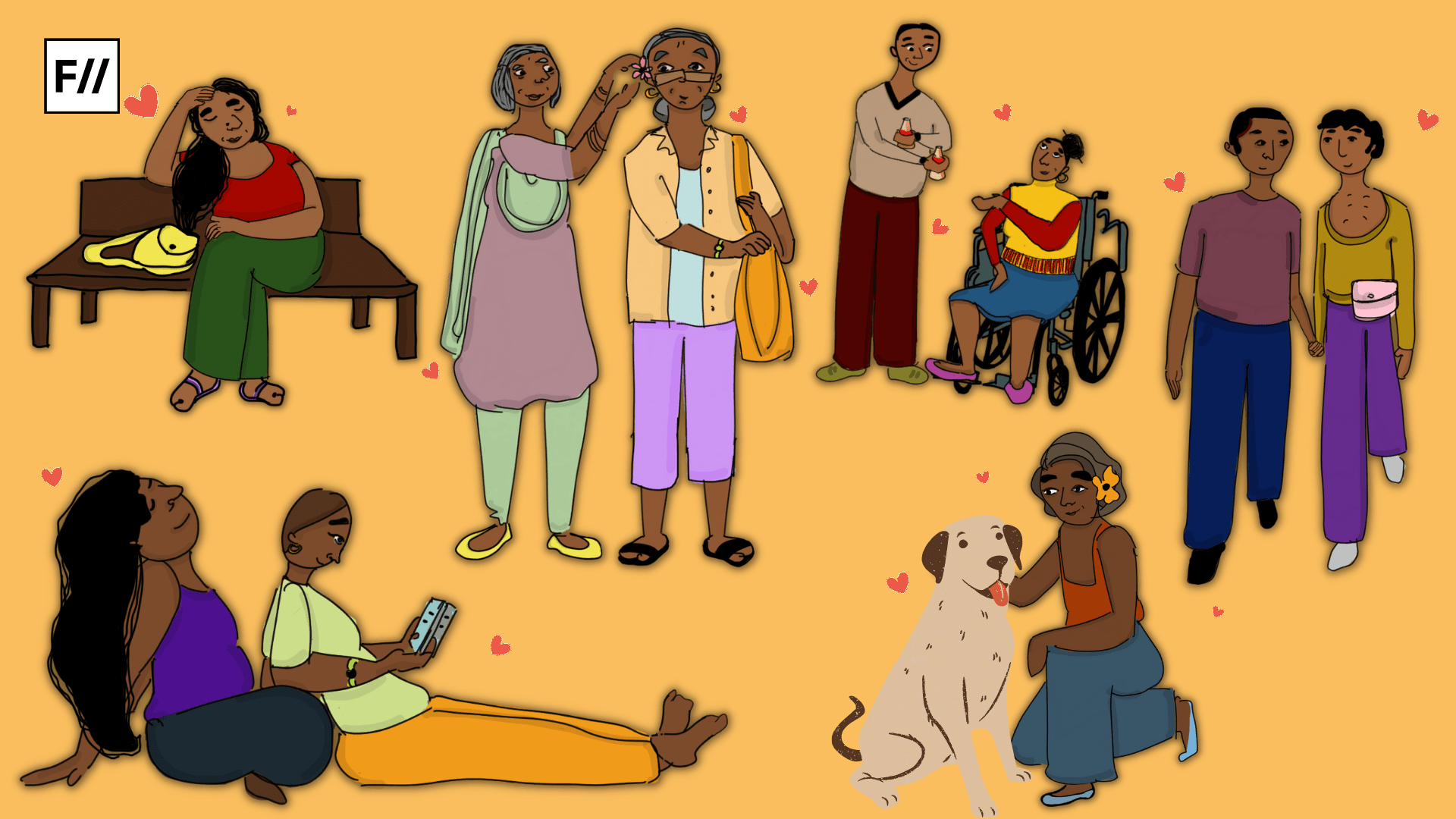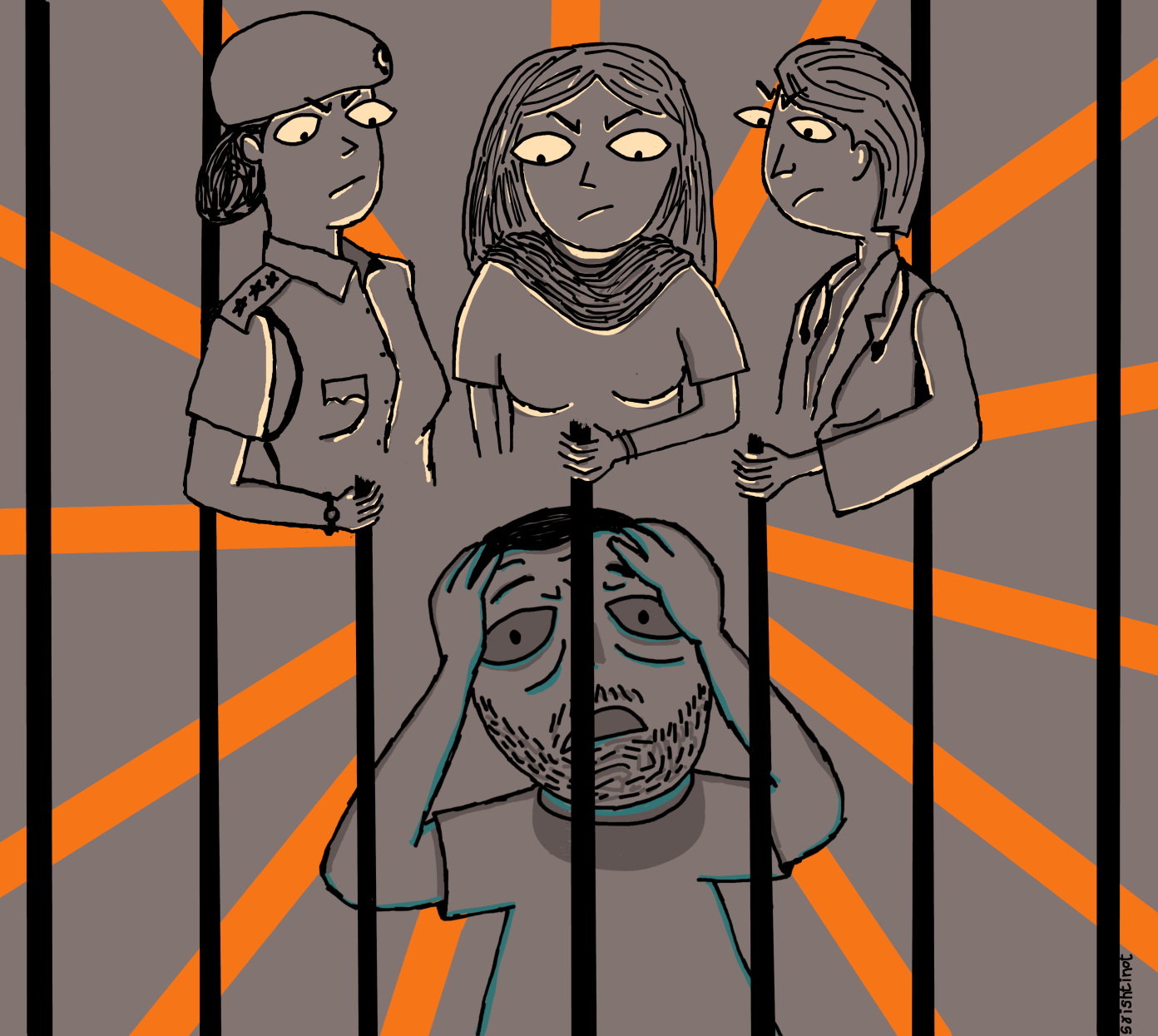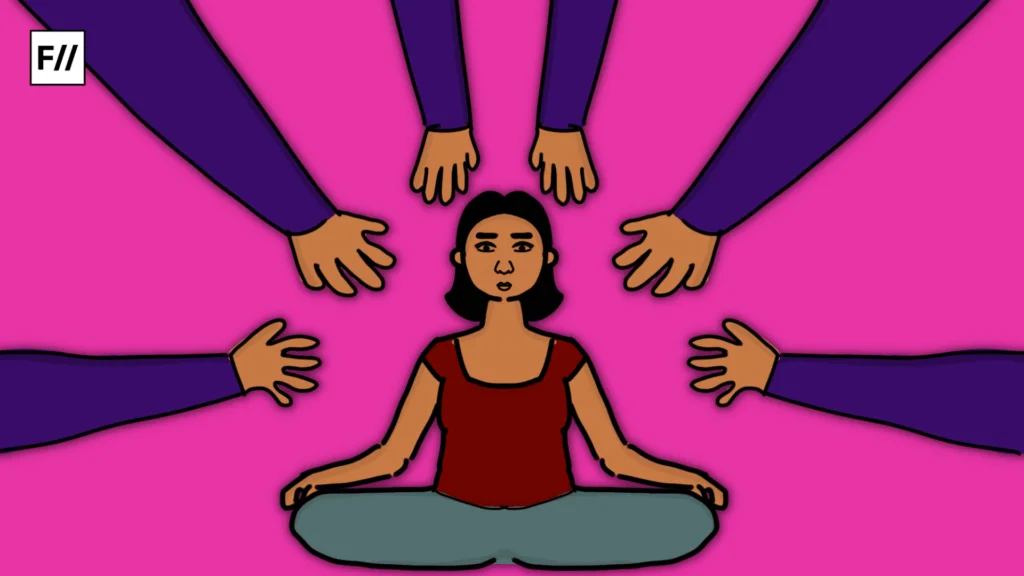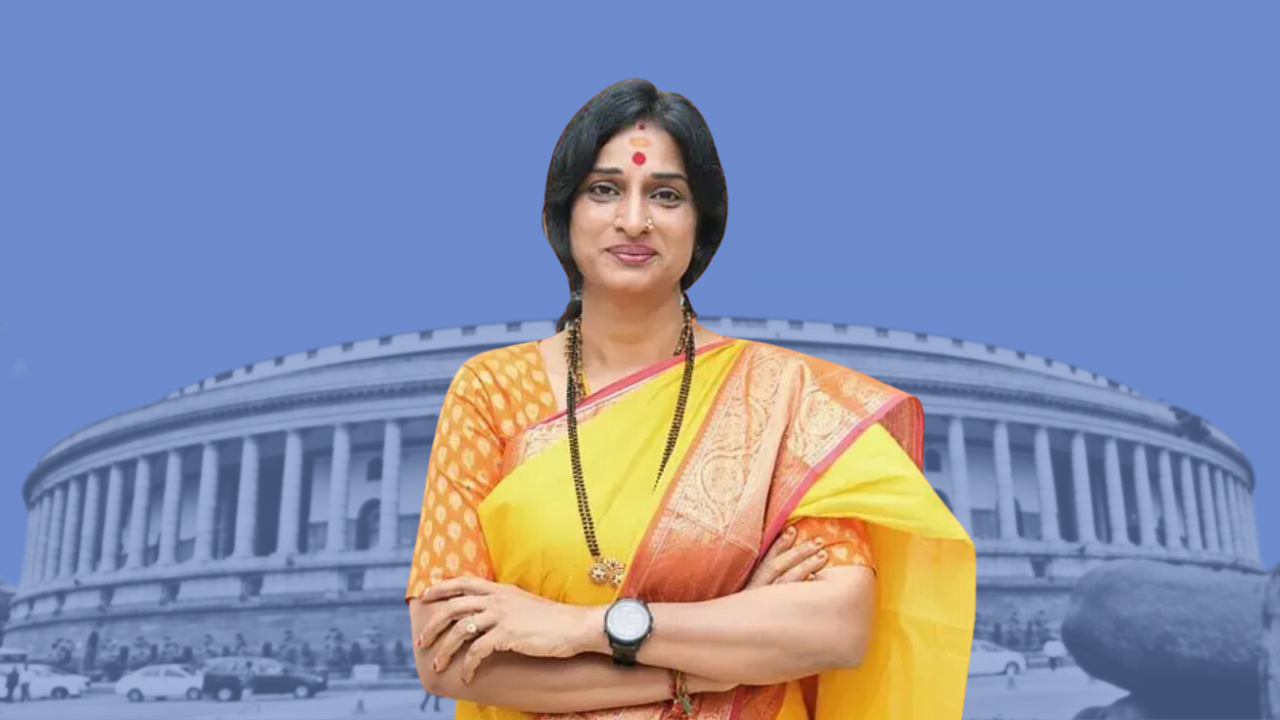Love is an emotion that is very central to our existence. It is a feeling with many different kinds of manifestations. It is healing and cathartic all at once. Different people experience and express love differently. It is also one of the most romanticised emotions be it in popular culture, art, literature or any kind of creative pursuit.
Over the years, love has also become a political tool used to regiment individuals. Strict socio-cultural and legal definitions of who can be loved by whom, and how each gender must love, has led to the concept become broader than just a private emotion. It is often a way for the state and the society to impose moral codes into individual choices.
Women, people from marginalised gender, sexual and caste identities bear the brunt of this kind of interference all the more. We live in a society where we see incidents like honour killings, violence on queer individuals and women increase rapidly based on their choices of who to love, marry or emotionally engage with.

Our public conscience about love is also very skewed and restricted to moralistic, ableist kinds of love. The love between individuals with disabilities are seldom brought into conversation. Our imagination of the emotion consists of heterosexual, able bodied individuals, thereby invisibilising the emotional universes of those who live and love differently. We rarely peruse the ways in which older women, single mothers or divorced women find love either.
The internet has further made the idea of love much more varied and layered. The introduction of dating applications and matrimonial websites have made finding love and companionship a different ball game altogether. These platforms have enabled agency and the assertion of individual choices. At the same time, they have also facilitated abuse in the anonymity of the digital atmosphere.
Our ideas of love have almost always been limited by slotting it into romance. The commercialisation of love as the most sellable emotion has also made it performative to a very large extent. We fail to account for platonic relationships, friendship, loving oneself, as well and loving pets, or parents. Love is a spectrum of emotions that run free and fluid, and we have as a society tried to shrink it into moulds that we feel are right.
In this context, we at Feminism In India invite submissions on Redefining Love, throughout February, the supposed ‘month of love’. We hope to add to the conversation on this magnanimous, humbling emotion through articles, personal essays and reflective commentaries on the many aspects of it.
Also read: The Rebellious, Radical Act Of Queer, Disabled Love

Here are a few pointers that may help you write your submissions based on this theme:
- Love and pop culture – representation of love in popular culture, romance and toxicity
- Disabled love – love and disability, the layers of love, invisibilisation and search for companionship of disabled individuals, redefining love in times of isolation, of how our disabled self deserves all kinds of relationships, Celebrating Criplentines Day in collaboration with Revival Disability Magazine
- Queer love – queerphobia and queer love, the sensationalisation of queer romance in popular culture, legal and moral restraints on queer relationships, queer love and joy as an anecdote to restrictive morality
- Love after divorce – finding love after ending a marriage, loving as a single parent, navigating past trauma to find the courage to love again
- Older women and love – falling in love as an older women, the invisibility of women and their love after 30, the need for companionship
- Love and family – love within family structures, adoptive parenting, the concept of blood relationship and how it regiments love, marriage and love, alternate family systems and love
- Self-love – being happy in one’s own company, navigating loneliness as a single woman, the pressure to find love and marry
- Dating apps and modern love – dating apps and the ways in which love has changed, online love and its complexities
- Platonic love – love between friends, loving pets/parents/children/spaces/things, the slotting of love as an emotion primarily based on sex
- The policing of love – honour killings, caste and class discrimination in love, state sponsored violence in the name of love
- The commodification of love – how love becomes performative in a capitalist space, Valentines Day
This list is not exhaustive and you may feel free to write on topics within the theme that we may have missed out here.
We understand that some topics may be personal and hence, if you wish to publish them anonymously, kindly mention that in your email.
You may send in your submissions to sukanya@feminisminindia.com
We look forward to your drafts and hope you enjoy writing them.
We love you!
Also read: The Parenting Philosophy Of bell hooks: There Is No Love Without Justice
Featured Image: Ritika Banerjee for Feminism In India




